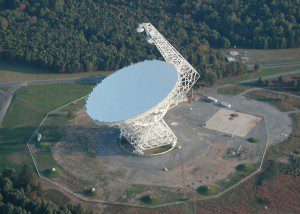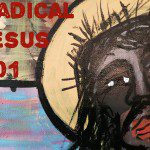“My God, my God, why have you forsaken me?” These words that Jesus spoke on the cross possess a profound mystery. How can a man who was also God ask a question like this? Was Jesus simply reciting the opening line of Psalm 22 pro forma? Or did God the Father actually reject God the Son as part of a choreographed pageant by which the world’s sin could be paid for in good capitalist fashion? This Lent, as I was preaching on Psalm 22, I was led to a new angle for understanding this mystery that I hadn’t considered before. Since humanity’s role is to be the icons of God, we often experience the presence or absence of God through the mediation of our human community. When things are clicking serendipitously with the people around us, God feels present. When we are fearful and suspicious of the people around us, we feel godforsaken. What Jesus does for us on the cross is to provide a model for how to embrace and survive our feeling of godforsakenness instead of letting it destroy our community through projection and scapegoating.
In Psalm 22, there are two basic components to the godforsakenness experienced by the psalmist: 1) the ostracization of his community:
I am a worm, and not human;
scorned by others, and despised by the people.
All who see me mock at me;
they make mouths at me, they shake their heads;
“Commit your cause to the Lord; let him deliver—
let him rescue the one in whom he delights!”
and 2) the brokenness of his body:
I am poured out like water,
and all my bones are out of joint;
my heart is like wax;
it is melted within my breast;
my mouthis dried up like a potsherd,
and my tongue sticks to my jaws;
you lay me in the dust of death.
Jesus’ cross is the synthesis of these two components of absolute social rejection and excruciating bodily suffering. By crying out to God the Father with the words from Psalm 22, he shows us that it’s entirely appropriate to take up our grievances with God when we experience the injustice of physical suffering and social rejection. The problem occurs when we don’t take up our grievances with God but take them out on other people instead. Much of the social fragmentation in our world can be described as misdirected godforsakenness. Let me use a metaphor to illustrate.

Several summers ago, my family took a vacation in West Virginia very close to one of the largest radio telescopes in the world (pictured at left). This telescope is sensitive enough to pick up radio signals from billions of light-years away. Because of the telescope’s sensitivity, cellular phone towers are not allowed within a radius of several dozen miles. The telescope can even be thrown off by the operation of microwave ovens in the nearby town of Green Bank, so the staff of the facility are authorized to confiscate any microwaves that interfere with the telescope’s signals. The telescope is made up of over two thousand aluminum panels that must be perfectly aligned in order to pick up signals from billions of light-years away.
Here’s how the West Virginia radio telescope serves as an excellent metaphor. The human community is like a giant radio telescope in which each human being is like an aluminum panel that must be aligned in order to collectively receive the still, small voice of God’s radio signal to us. Thriving spiritual communities that are responsive to the Holy Spirit are like well-functioning radio telescopes whose panels are aligned correctly to radiate God back and forth so that all experience the presence of God. The problem is that our sin has thrown our panels out of sync, so that we’re unable to receive God’s signal and it feels to us like God is absent because our community is broken. As much as we want to be able to experience God’s presence as individuals, our ability to do so is often contingent upon the context of our surrounding community.
There are two words in the Hebrew and Greek language for the static which interferes with God’s signal and throws our community radio telescope out of whack. They are satan in Hebrew and diabolos in Greek, which becomes “devil” in English through its Germanic bastardization. These words were not originally proper nouns. They referred to destructive roles in a community. In Hebrew, to satan somebody means to accuse or heckle them. In Greek, diabolos is a compound word combining ballo (to throw) with dia (in the midst of), so to “devil” a community means to throw it into chaos.
Is there a real Satan out there? Absolutely. There are as many devils as there are people who take their godforsakenness out on other people by becoming hecklers and saboteurs of their community’s social fabric. It doesn’t really matter whether the devil is an actual person or the personification of a very real and dangerous phenomenon (though I tend to believe that the phenomenon is too strong and pervasive for there not to be an actual person behind it). Regardless, when I convert my unacknowledged inner anxiety and lack of spiritual security into the demonization of other people, I am doing the work of Satan.
But Jesus’ cross gives me another option. I can trust that God is actually with me in my experience of God’s absence. How crazy is that? Let me say something even crazier. The cross shows how the sin and fragmentation of the human community makes God himself feel godforsaken by us. At least it was enough to make the man who was fully God say, “My God, my God, why have you forsaken me?” Setting aside our Greek metaphysical presumptions about God for a second, something completely devastates God about the way that our sin has separated us from him. Devastated enough that God the Son was willing to let himself be murdered by us in order to show us what we’re doing to God every time we crucify each other.
Here’s what else I believe. If we’re able to cope with our godforsakenness by taking up crosses like Jesus and crying out to God in our godforsakenness rather than demonizing and scapegoating people in our community, then we can create a community of human radio telescope panels that have been realigned around Jesus’ cross. When we follow the exhortations of the apostle Paul in Philippians 2 and defer to one another in grace and truth as cruciform icons of God who recognize our own fallibility and thus refuse to demonize and scapegoat the other, then we will start to get God’s signal back. And the godforsakenness that we share with our crucified messiah will become the glory of God radiating in our midst. And that, my friends, is salvation that a whole community can enjoy together.












